Subsections
Arrived on time, 12:10 noon, long queue for passport control. Received by Tomasz
Janowski, Elsa Estevez and Sara Fernandes. Waited a long time for a
taxi. Left my luggage at:
Hotel Royal Macau
Estrada da Vitoria 2-4, Macau
and on to Antica Trattoria da Isa[bella]. Back to the hotel by 4pm.
Fetched by Wendy and her family (Wendy is Finance and Admin. Officer
at UNU-IIST; I hired her in 1993) for dinner in honour of Annie Chan's
2nd child, a daughter, hardly a month old; 72 guests at the Westin
Hotel, Coloane. Great dinner. To bed at almost midnight,
Wendy:
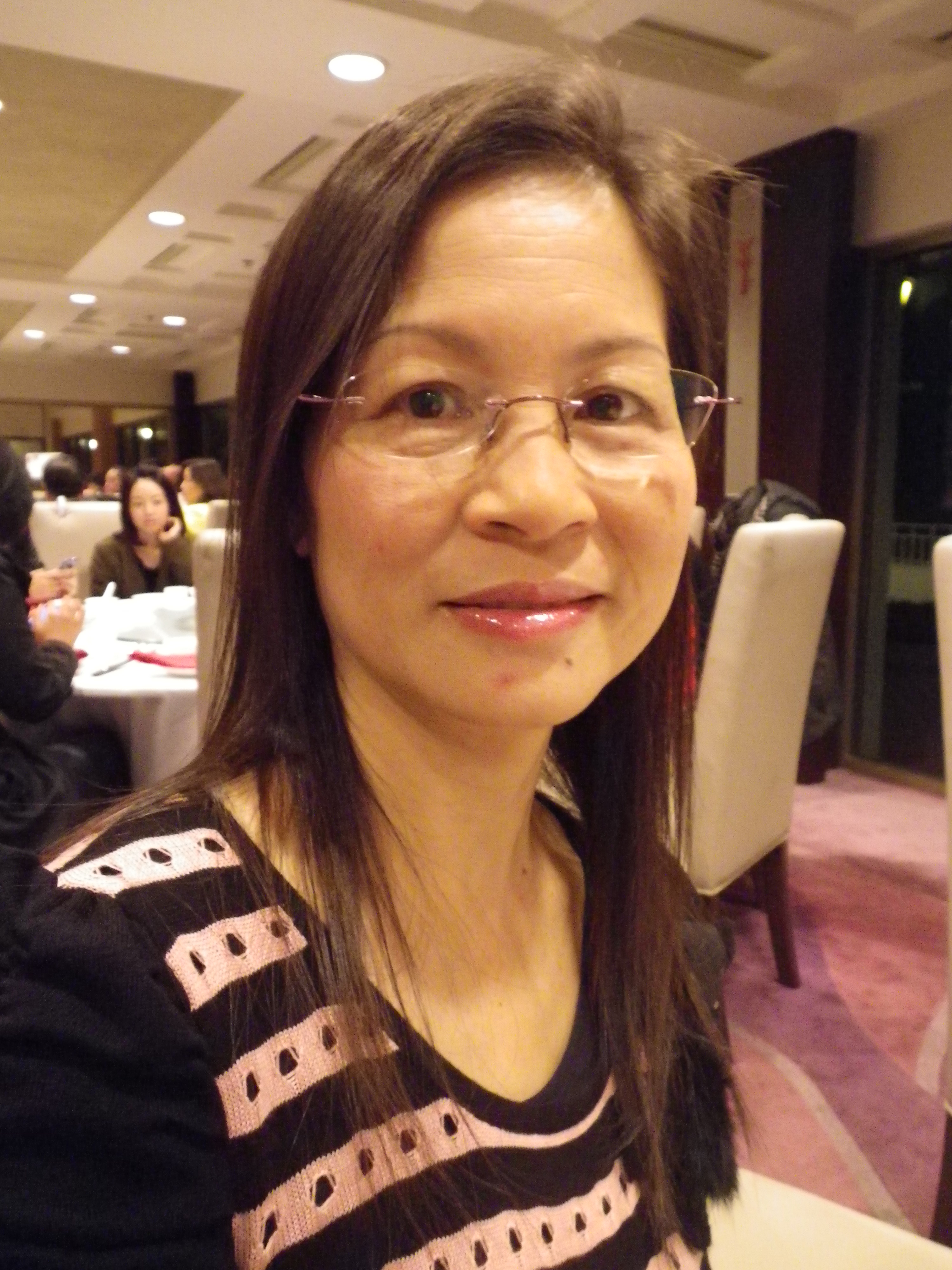
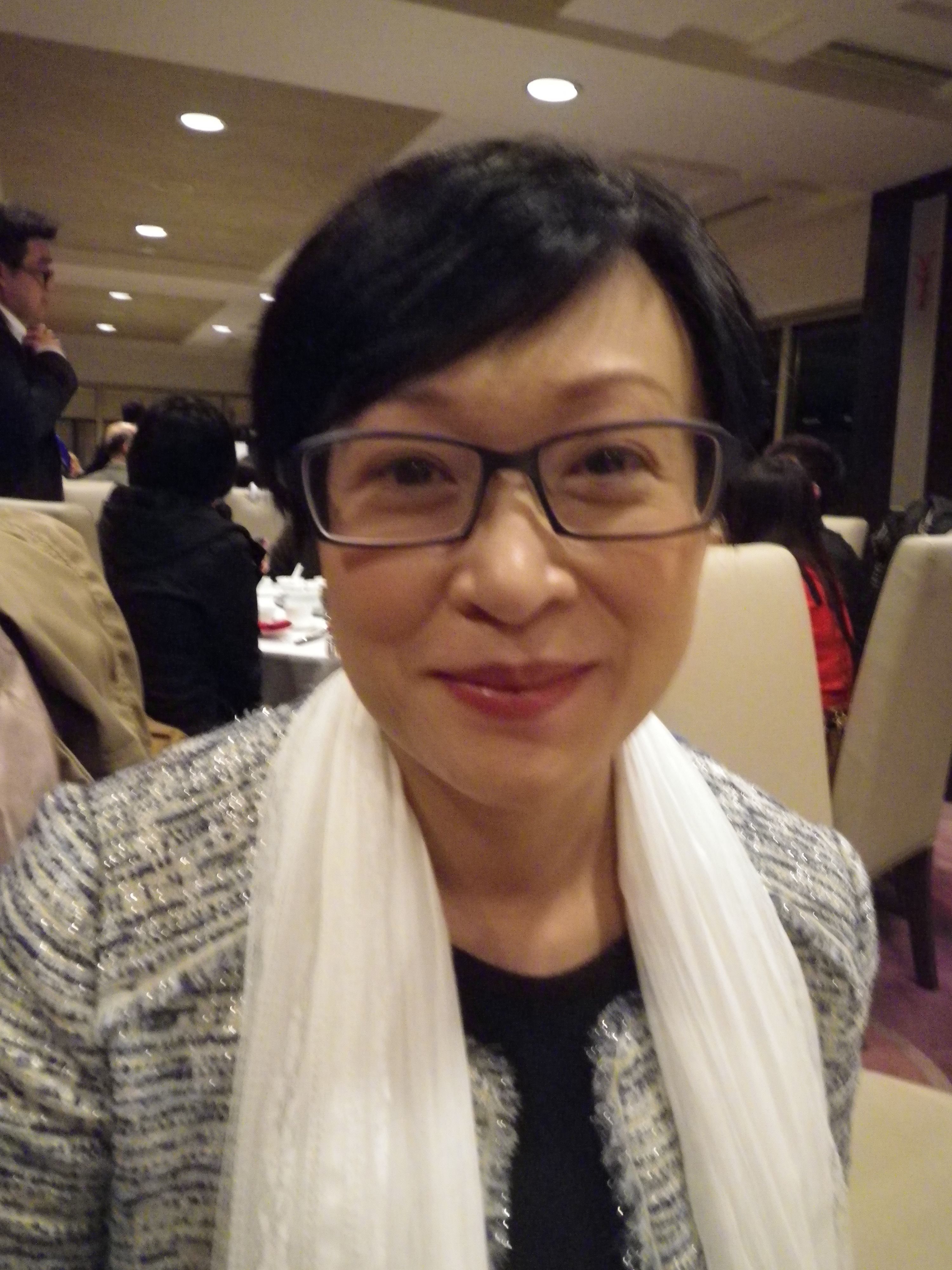
:Annie
Went to UNU-IIST at 10 am. Was let in by Sara Fernandes. Did some
e-mailing. Then, with Sara, a PhD student of Luis Barbosa at Univ. of Minho, Braga, Portugal, in taxi to Coloane Village. Walked through
Rua Negociantes, Met Anaita Lauder and Warren. They were closing up,
last week, after 38 years ! Moving to Georgetown, Penang, winter half,
with summers back in Macau.
Had lunch at Nga Tim, on the church square.
Strolled back and were hailed, at the Coloane Town Square: "Professor"
by Eileen Stow, with her
mother and niece. Sister Eileen took over Lord
Stow's world famous
bakery when he died suddenly, in 2006, of an asthma attack. Sara was
duly impressed: everybody knew me and Kari ! Had coffee and egg tarts
(pasteis de nata) at
Eileen's coffee place around the corner from the shop. Back to work,
and, me, later rest at the Hotel.
Delightful lunch in a chinese restaurant near the Univ. of Macau
with several professors including Qing Li (HKG City Univ.), Ging
ZhiGuo (head of DCS, Univ. of Macau) and old friends Li XiaoShan and
Xu QiWen.
Li XiaoShan
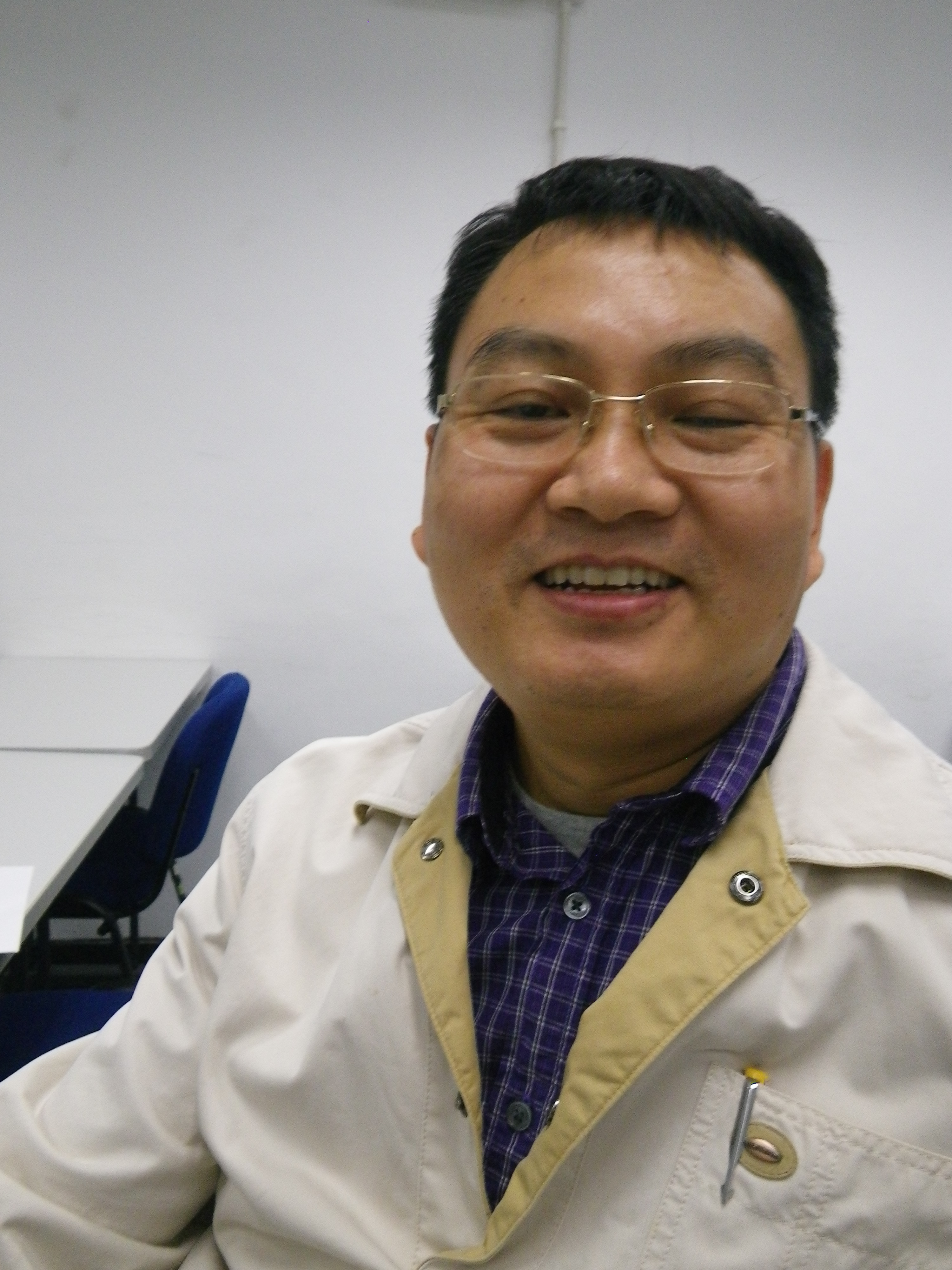
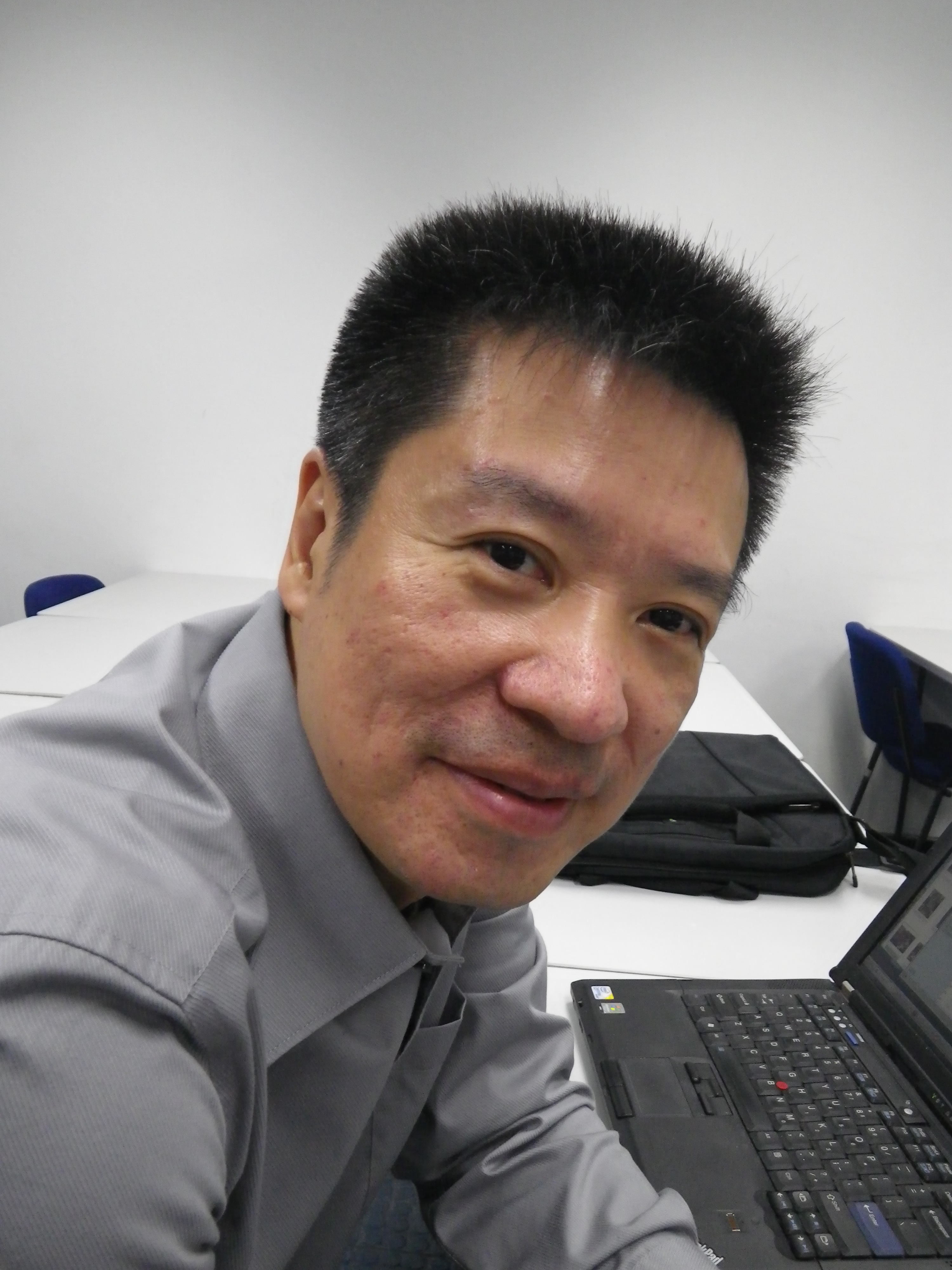
Xu QiWen
15:00-16:30 Room WLG303 Seminar
A Survey of
Formal Methods in Software
Engineering
University of Macau Faculty of Science &
Technology,
Prof. Li Xiao
Shan
Seminar Abstract
and
Seminar Slides
That evening I went by myself to Afonso III, my favourite Macau
restaurant. Came at 7pm, left at 11pm ! Delightful evening. Talked
with many diners and with Afonso. He mentioned that Father Lancelot
was very ill and in the government hospital.
At UNU-IIST, discussing an abstract concept of documents with
colleagues and PhD. students of Tomasz Janowski.
6:30 pm: opening of Dennis
Murrell's
Exhibition,
MMoA
After visiting the opening session I
took a taxi to Taipa Village and had dinner at A Petisqueira, 15 Rua de S. Joao.
1pm, Clube
Militar de Macau
,
Mrs. Molly & Dr. Gary Ngai Mei
Cheong.
Enormously delightful. Two octogenarians, far more energetic than me.
On my walk home I inquired with the Social Services office of the
diocese and was told by Teresa that Father Lancelot was, for the
moment, in Taipa for physical training: Yes, he was well. So father
Lancelot called me in the evening at 8pm and we agreed to meet Friday
at 11am. Great news.
- Visit of Oliver Kærgaard Dahlstrøm, HK Poly
Tour of the UNESCO Macau "Trail".
I fetched Oliver from the Outer Harbour Jetfoil Terminal at 10
o'clock. We took bus 10A to Ah Mah temple and strolled from there
``up'' the UNESCO Macau Heritage Trail. Had lunch, as booked, at
Afonso III. Then saw the library at Leal Senado and the upstairs room
at Casa Misericordia with the painting of the lady from "The
City of Broken
Promises",
the fine book by Austin Coates. I left Oliver to his own devices
shortly after and went home to rest.
I then visited
Father Lancelot Rodrigues
,
Rua de Santa Clara 13, on the square where the chinese business
mens' reading room is.
Father Lancelot was full of vigour and we
reminisced about "old days". He asked me to carry back best
regards to Peter Rosting, the Danish Consul General in the 1990s
for Hong Kong and Macau.
UNU-IIST
20th Anniversary Celebration
Some 80-90 people were invited. Speeches were first given by
Dr. Peter Haddawy, the current director of UNU-IIST; the rector of
the UNU, formerly Rector of ETH, Zürich, Switzerland;
the chair of the UNU Board, Prof. Sharon Dawes; the Portuguese
Consul General to Macau and Hong Kong (a very good speech indeed);
a deputy director of the Chinese ministry of Science & Technology;
and of Dr. Whu ZiLiang, current president of Macau Foundation.
Ji FuSheng, Zhou ChaoChen and Deepak Kapur
Dines did not like very much the UNU rector's speech. In it, to
Dines' ears, he said: before UNU-IIST worked in formal methods, now
UNU-IIST is empowering developing nations, "twinning" with
universities worldwide and graduating PhDs. Well in my speech,
if that rector was able to interpret its clear message, he was
soundly rebutted.
I wish to honour three people tonight.
The late Dr. Ines Wesley Tanaskovic, the late Dr. Antonio Rodrigues
Junior and the recently retired Mr. Chris W. George.
Ines Wesley Tanaskovic:
(UNU Council Chair
sometimes in the early-to-mid 1980s.)
- My daughter and I were
relaxing in our hotel room, at the Imperial, in Tokyo,
Japan, Tuesday, 6th of January 1987. She has come from Hong Kong,
after three months in China with the Zhou Chao Chen family; I
from Denmark; she had just asked me: Daddy, had I been to
Macau? To which I replied: No, not yet, when the telephone
rang: someone from the UNU of whose existence I did not
know. The person, Mr. Vagn Kjellberg, had learned of my
whereabouts from my secretary at home. Could I, please, attend
an exploratory meeting 2-4 March (same year)? Yes. My daughter
``cried'' unfair!
- So a group then met at the old Mandarin Hotel here
in Macau. That's where I first met Ines Wesley Tanaskovic.
She had heard me opening the IFIP World Computer Congress in
Dublin in September 1986 and also my interventions as the Nordic
countries' delegate to the UNESCO (then Interim)
Intergovernmental Informatics Programme (IIIP) in Paris in
November 1986. She said that she liked my tough stance at UNESCO
and my ``vision'' for
`informatics' as laid out in the IFIP Congress opening speech.
- I then heard nothing for four years. I also expected nothing.
Then Ines phoned me, late March 1991, to my office
in Denmark, from Belgrade: Was I going to apply for the position. As
what? Well, had I not seen the advertisement in The Economist? So I
told her that a certain group of computer scientists did not exactly
browse The Economist for job opportunities. She faxed the ad.
- A month later Dr. Roland Fuchs, the UNU Vice-rector, a person I
came to like very much, telephoned me from Tokyo, also to my
office. Was I going to apply? No I was not. People, sorry to say it,
at my age and in my situation and position did not exactly apply for
new jobs. Was I interested in the position? Yes. Could I send them a
CV. So I told Roland that Unisys Nihon, three floors down from the
UNU HQ in the Toho Seimei bldg., Shibiuya, had my CV. I had given a two day
seminar for which they paid a handsome honorarium - so
obviously, people etc. who pay me well can always get my CV. Roland
called back an hour or so later. Could I come to Tokyo. Yes. So that
was arranged.
- I came to Tokyo, talked with Roland, The Rector, a
Bresilian, and several others. Nice people. They offered me the
position. I said yes subject to my wife's almost guaranteed
acceptance etcetera. So I flew home via Hong Kong, Macau
(Dr. Rodrigues) and
Beijing (Prof. Ji FuSheng), visiting also my daughter at BeiDa.
- So I must thank Mrs. Ines Wesley Tanaskovic for having
talent-scouted me and for thus enabling some of the happiest 5 years
in my life and for afterwards enjoying yet 10 years of
exciting subsequent visits to UNU-IIST.
- Bless her memory.
Antonio Rodrigues Junior:
(President of the Macau
Foundation during Dines' tenure at UNU-IIST.)
- I first met Rodrigues in May 1991 when I first became Director
designate of UNU-IIST. I paid a courtesy visit to Macau and he
received me at the old outer harbour Jetfoil terminal.
- My wife and I were subsequently received at the same terminal
when we arrived more than a year later, 1st July 1992. Immediately
one was struck by his empathic kindness.
- I came to like Rodrigues very much. As a UN Director it was my
not too pleasant
duty to remind the Macau authorities of their very many obligations
as laid out in the three party agreements finally signed in March
1992: regular, but repeatedly delayed, installments of the US$30 mio. funds; temporary offices, "privileged and inviolable", before a
permanent building could be designated and remodelled; diplomatic
cards for all (was it non-local ?) staff and fellows; etc., etc. Those
were not easy years. The governor at the time, a former Portuguese
NATO general, was not quite up to the task and did not appreciate a
UN Director's rank versus his own. Rodrigues was squeezed between
him and Dr. Rangel, under whom it appears that the Macau Foundation
was "located". I understood his predicaments, and we had many a good
lunch where we could momentarily escape from those concerns.
- Two anecdotal episodes.
- The first had to do with our waiting for 10 months before we
could move out of the Macau Foundation offices in the Sitoi bldg., into our
own "privileged and inviolable" offices to be occupied temporarily,
for some 4-5 years before we could finally move into the
much later designated "Da Silva Mendes" building.
I had been instructed by the UNU HQ to
press for a decision. A pressure that clearly irritated the governor
and Dr. Rangel. Rodrigues was in a predicament. I reported, over
one of our fine lunches, that Tokyo was impatient and that the
Rector was contemplating visiting us and the governor. When the
rector came Rodrigues, as we were waiting for him at the old Jetfoil
terminal, "solved" the problem: "Tell the rector that three of the
floors in the building where you are now are saunas", i.e., bordellos.
Well, the rector took an immediate meeting with the governor, and the
offices in the Banco Luso building, 18th floor were then offered.
- The second had to do with the choice of an architectural firm
for the redesign of the eventually, after long delays, designated Da
Silva Mendes building. Rodrigues was in a slightly difficult
position. He wanted me to designate the firm based on three
proposals for doing the redesign - these proposals showed what the
three firms had done previously. I told Rodrigues that since it was
a gift from Macau to the UN, they, Macau, had to decide, not us. Well, there
were pre-histories with these three firms, etc., etc. So, looking at
the proposals we quickly eliminated one as not realistic. On the two
remaining, I chanced to comment that one of them had designs that
sort of looked a little bit like saunas, flashy colours, etc. -
and the UN had to display an air of respectability - and that is
how we ended up with the wonderful firm of Irene 'O and Bruno
Soares. Ladies and gentlemen: a hand for them both, they are sitting
there.
We honoured the memory of the late
Dr. Antonio Rodrigues Junior, in Lissabon, on the
occasion of our 10th anniversary. Let us honour him again today.
Chris W. George:
(Chris was at UNU-IIST
1994-2009.)3.1
- Chris is a great software engineer, a blessed pedagogue and an
outstanding computing scientist: one of two master minds behind
RAISE, the method used at UNU-IIST 1992-2009 for the professional
development. Chris also is behind many of its theory-based tools,
notably including proof tools. For that he worked day and nights and
weekends.
- Chris took on fellows from many countries around the world:
taught them the very latest, professional, technologically advanced
and industrial approaches to software
engineering, and on such applications as (a) Radio Telecommunications
for The Philippines, (b) Vietnam's Ministry of Finance, and (c)
Harbour Management for Madras/Chennai harbour in India -- just to
mention a very few.
- Radio Telecommunications: With Roderick Durmiendo Chris
empowered The Philippines to design their own telecommunications
system -- in use today, designed/conceived in no small measure by
Philippine fellows, here at UNU-IIST. Truly empowerment and truly
twinning: between University of The Philippines and UNU-IIST.
- Ministry of Finance: Chris took over where internationally
famous consulting firms were judged by the Vietnam Ministry of
Finance not to be able to deliver "the goods": a design for the
computerisation of the ministry's taxation, budget and treasury
departments as their work is distributed over state, province,
region, city and commune level offices. With four fellows Chris
helped them develop a domain model of the ministry and requirements
for its computerisation. Truly empowerment and truly
twinning: between Vietnam's Ministry of Finance, the Vietnam Academy
of Science's Institute of Information Technology and UNU-IIST.
- Harbour Management: Chris helped fellows from Madras/Chennai to
domain model, to requirements prescribe and to software implement a
system for the management of ships approaching harbours, berthing
before going to quay, etc. The result became used by Chennai harbour
and there is now a company, founded by these fellows, marketing and
further developing this software for customers in the region. Truly
empowerment and truly twinning with the Chennai academic institution
where these fellows first came from.
UNU-IIST was not focused only on formal methods. We simply used them.
Yes, a group at UNU-IIST post-doc trained fellows in the computer
science underpinning the formal methods.
The fellows were all delighted. Came home truly empowered.
Many are now full professors in the countries they came from.
- Chris helped preserve continuity in times of absent UNU-IIST
directors.
So we can say, today, with some confidence, that it was, perhaps,
not a wise decision to let both the former director and Chris George leave
UNU-IIST at the same time back in 2009. Rather: it was disastrously
unwise and left a gaping hole.
- I wish with this to honour also Chris W. George for his unselfish
extreme dedication and loyalty to the UNU-IIST Charter, for his
hard-working engagement in core UNU-IIST matters: Fellow-tutoring,
UNU-IIST's IT issues, the daily support of UNU-IIST directors,
when they were in place, and for his crucial and successful role as
acting director, many times and in long periods. Thank you Chris.
This ends my talk in honour of three truly fine people all of whom
made my years here at UNU-IIST so very enjoyable. Thank you all.
The banquet was an occasion to meet many old friends from up to 20
years back: Adam Iao (Director General of the Macau
Computer Society)
and Chan Wan Hei, `Sam', a co-founder of the Macau Computer
Association in 1992. UNU-IIST helped MCA, now MCS, from its first
days, providing temprary office space as well as housing their first
meetings in our Banco Luso offices.
And it was also an occasion to meet new people:
Prof. Leong Tze Yun
(Vice Dean, External Affairs, NUS (Singapore), a member of the
UNU-IIST Board), Harald Brüning (founder and Director of
The Macau Post),
José Carlos Matias (English News Chief Editor, The Macau TV
(TDM)), Father Peter Stillwell STD (Rector of The Saint
Joseph University
in Macau),
Mr. Tou Veng Keong (Lawrence) (Director of the Bureau of Telecomm. Regulation, Macau), and many others.
Met, in the door into the hotel
breakfast room, the UNU rector, the UNU-IIST director and the UNU-IIST
board member Dr. Natarajan Shankar -- who said to me (while
(unawares) keeping the UNU rector held up (so conveniently)): "Dines I
liked your talk last night, especially that you mentioned Chris
George; yes he is a really fine computing scientist." That remark of
Shankar's made my day, if not my whole trip from Denmark.
Had lunch at Restaurant Espacio Lisboa in Coloane Village - the
former Caserolle. Nice memories from there.
"Last dinner" at Afonso with Tomasz, Elsa and Sara - with Dennis
Murrell as guest.
Tomasz Janowski and Dennis Murrell
Up at normal time and with the
Macau  Kowloon jetfoil at 10 am.
Kowloon jetfoil at 10 am.
Dines Bjorner
2012-12-24

 :Annie
:Annie
 Anita
Anita
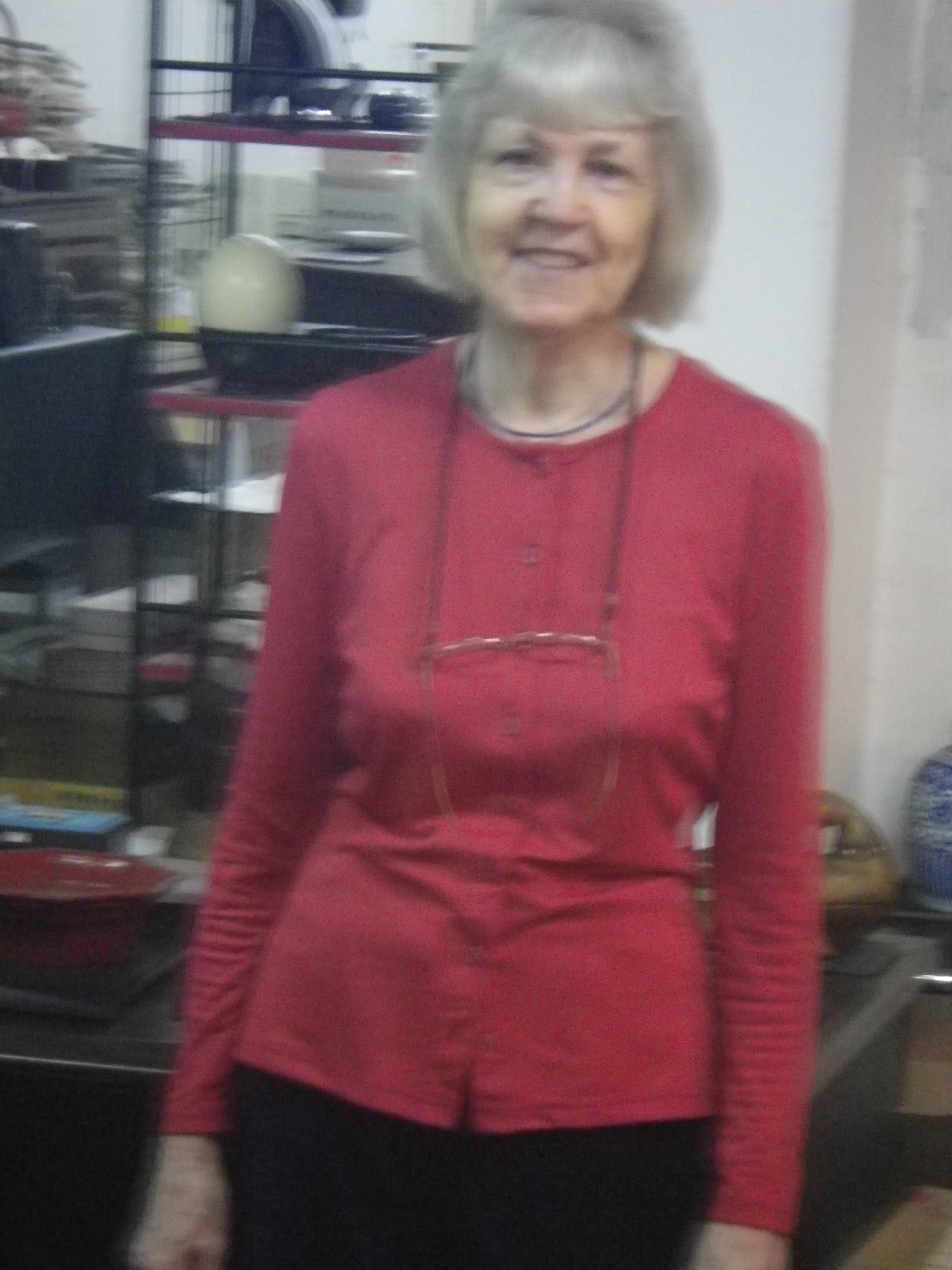
 Sara
Sara

 Xu QiWen
Xu QiWen
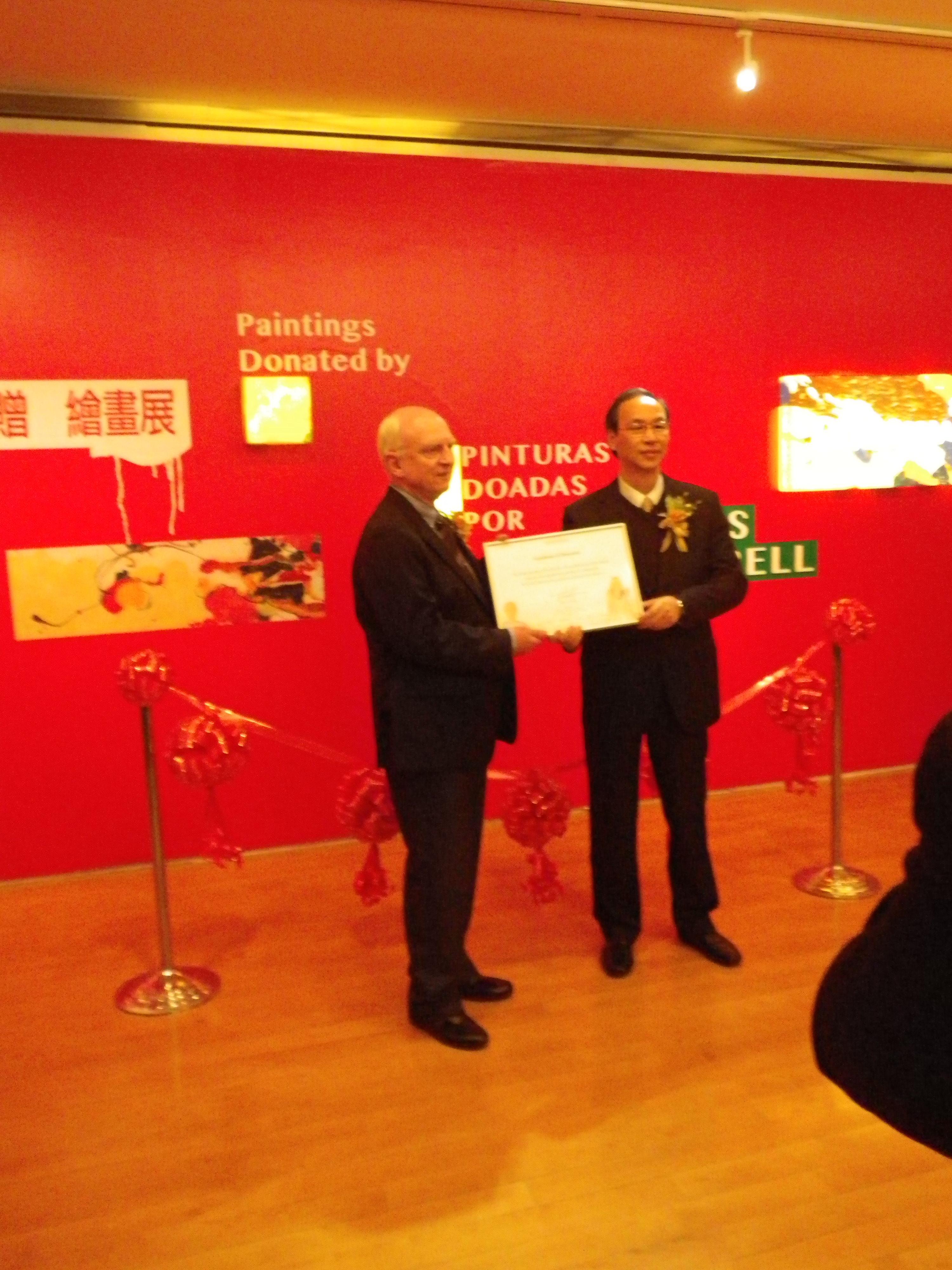


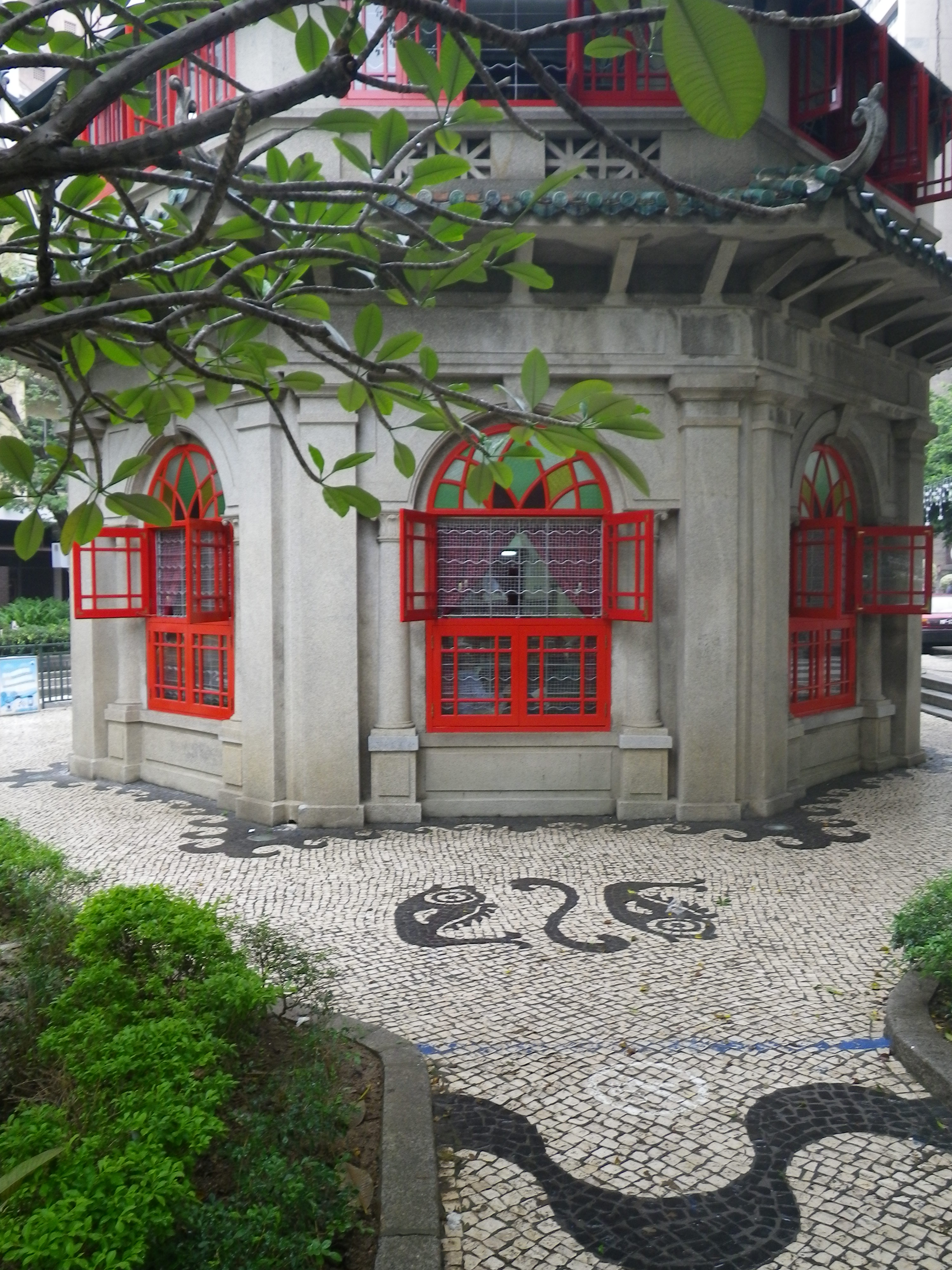
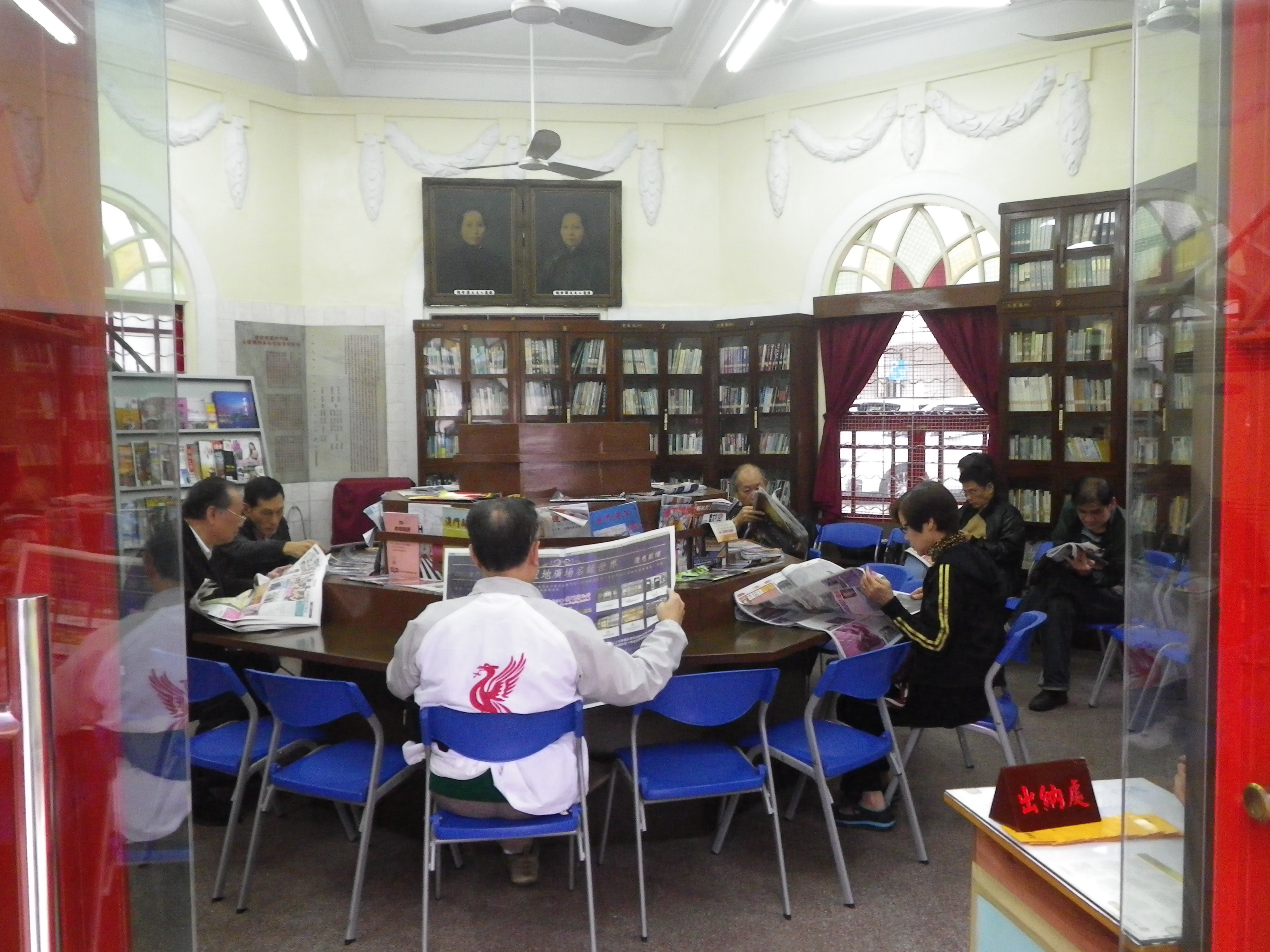
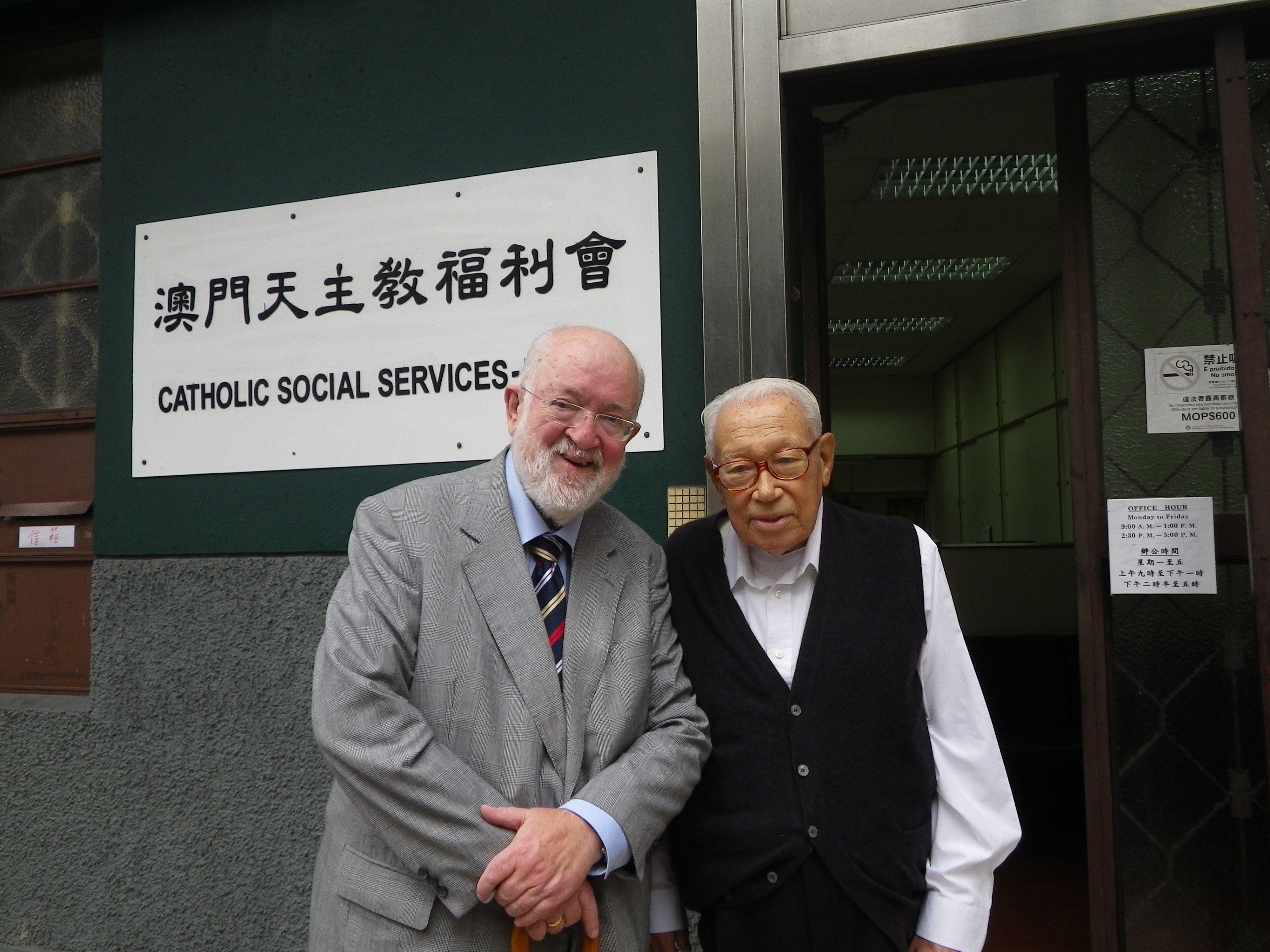
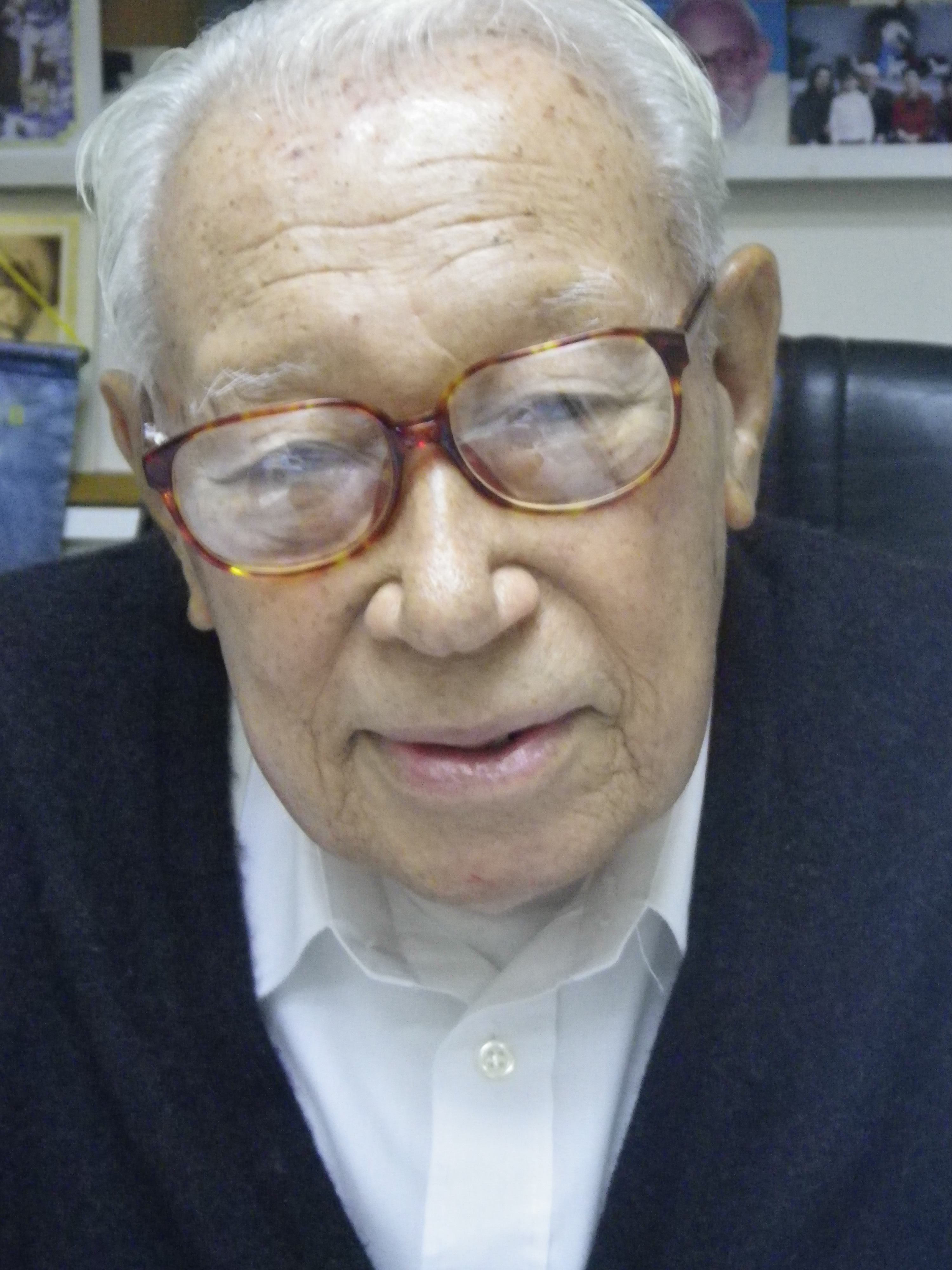
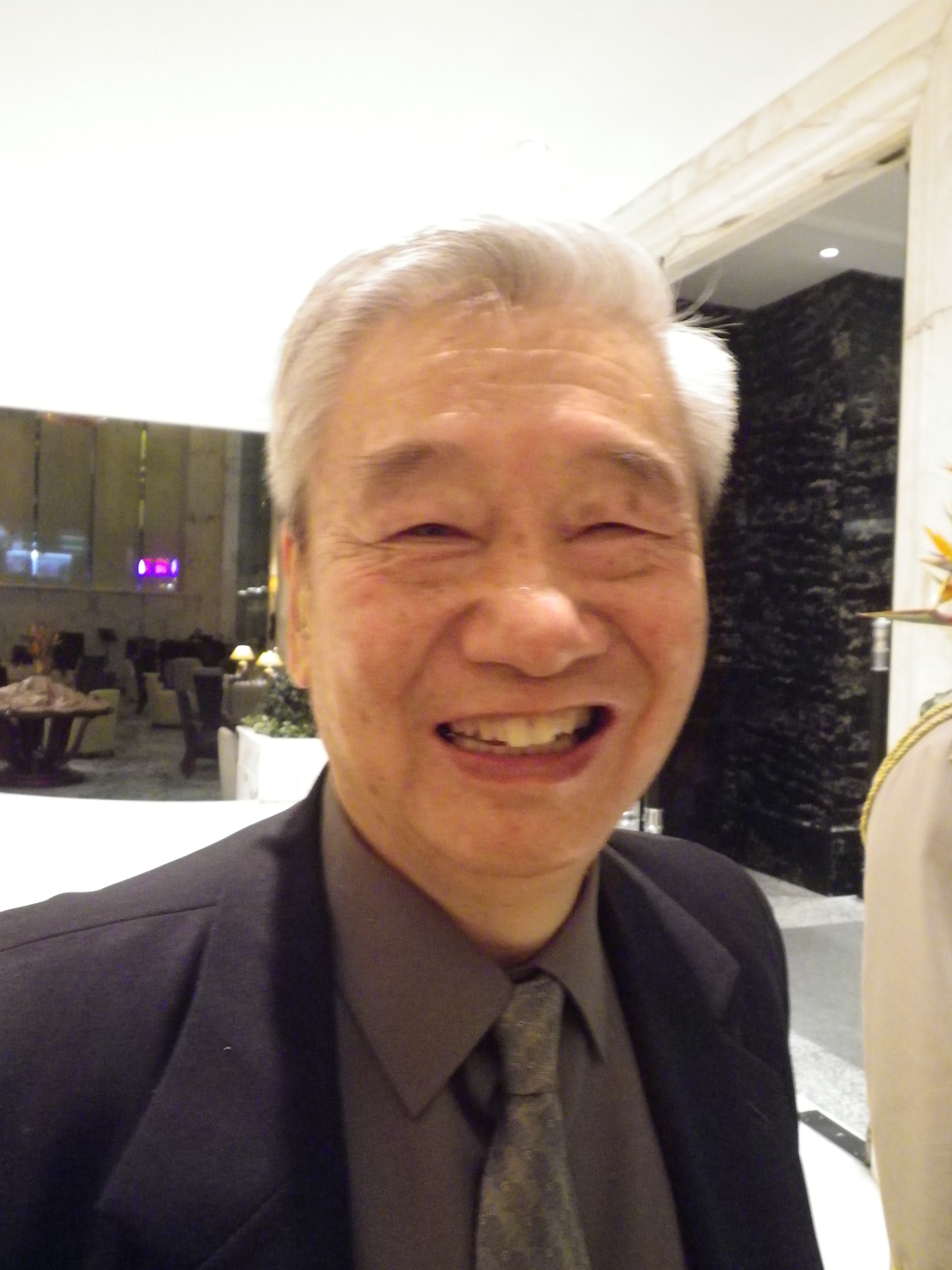
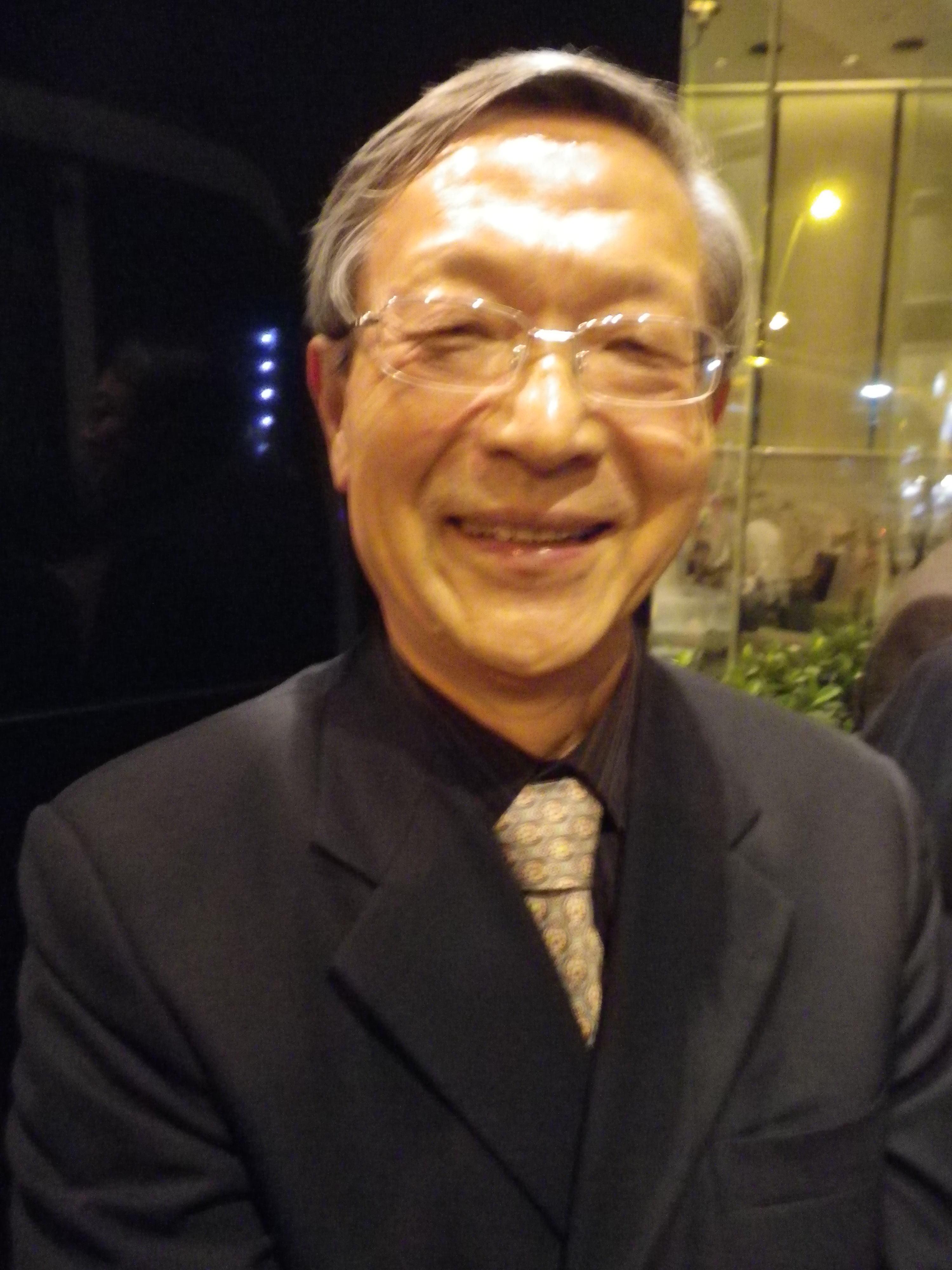
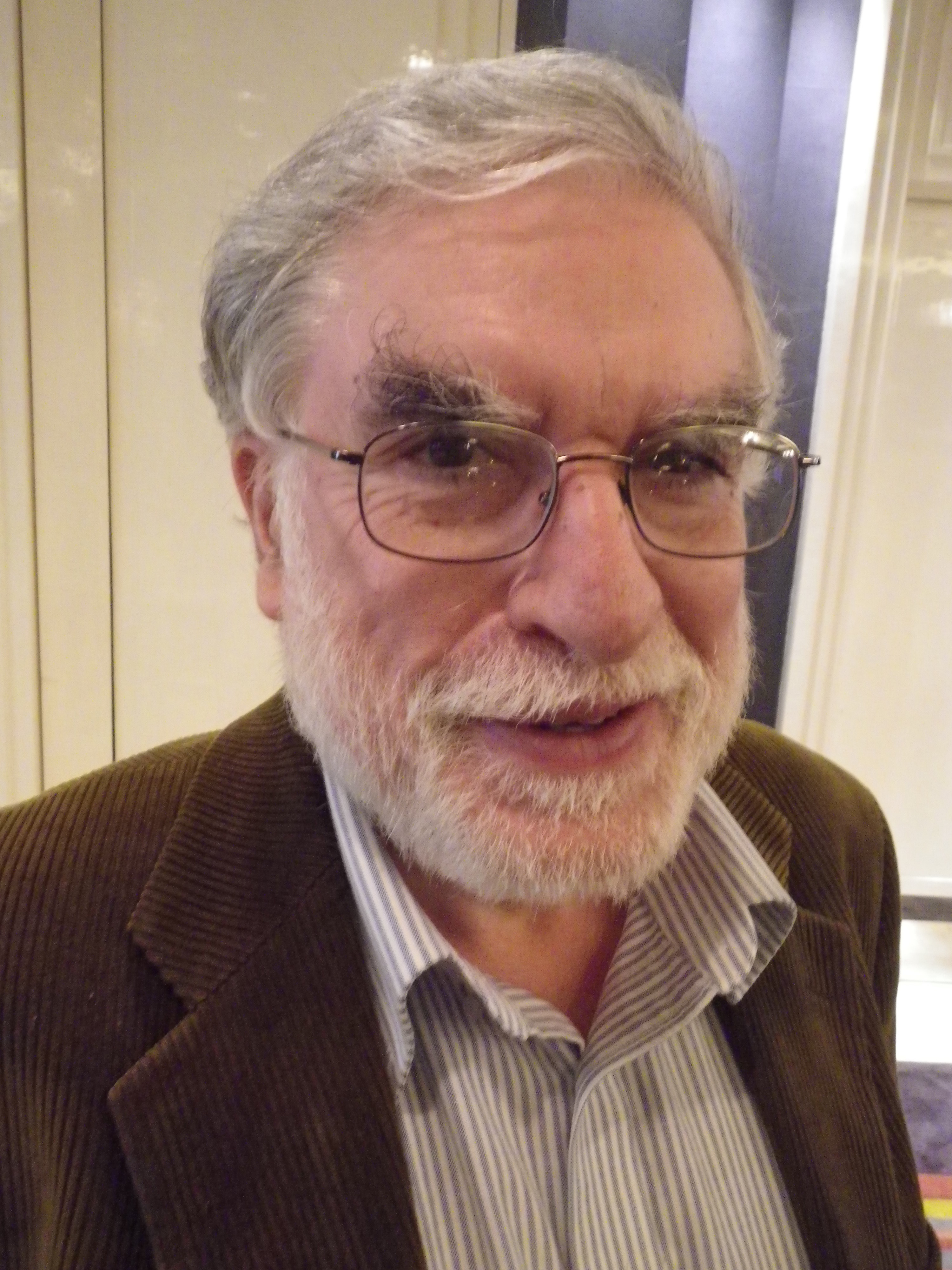
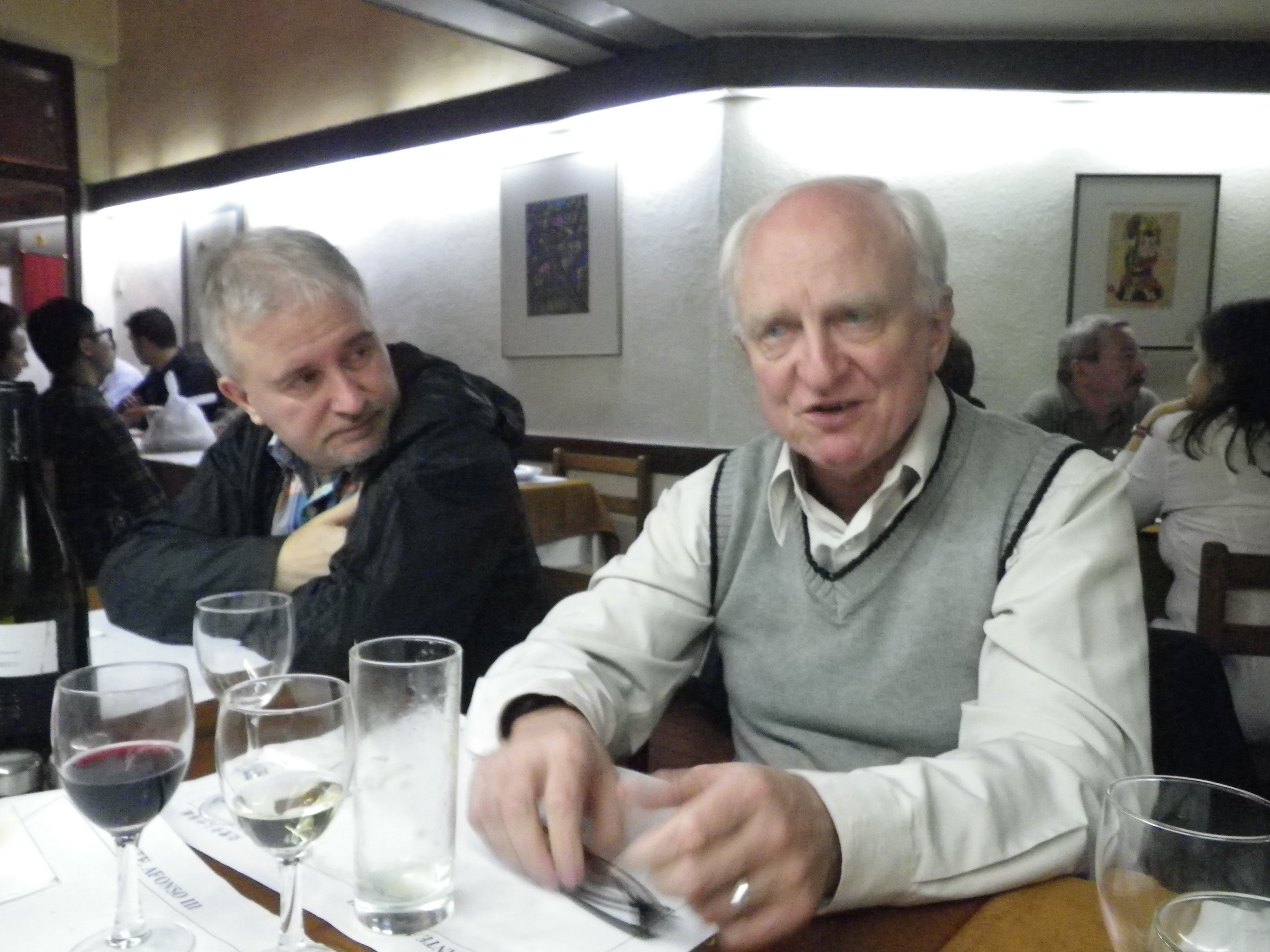
![]() Kowloon jetfoil at 10 am.
Kowloon jetfoil at 10 am.